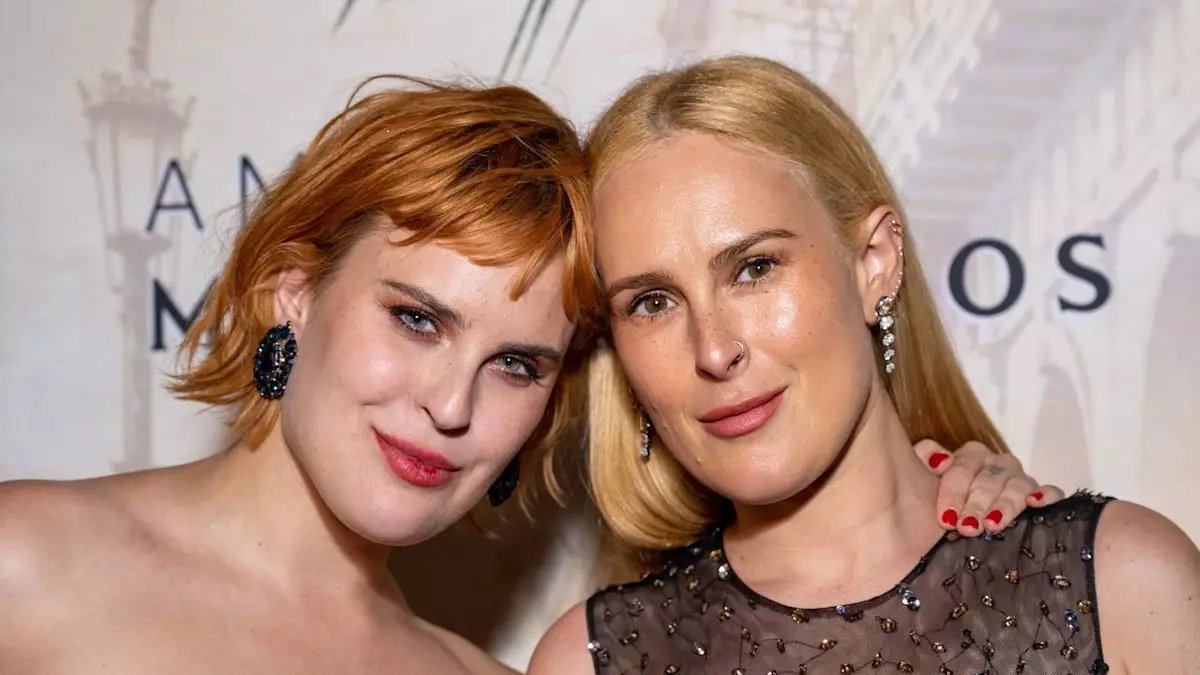At the age of 29, Tallulah Willis, the youngest daughter of Hollywood icons Bruce Willis and Demi Moore, received a diagnosis that would profoundly affect her life and relationships: autism. This revelation did not merely mark a medical classification for Willis; it catalyzed a transformative journey toward self-acceptance and understanding. In a recent interview with HELLO!, she expressed that her diagnosis has significantly strengthened her familial bonds, particularly with her sisters, Rumer and Scout. This deeper connection is rooted in a newfound ability to communicate her needs and limitations, which had long been masked by societal norms and expectations.
Empowerment Through Understanding
Willis describes her autism diagnosis as a liberating moment rather than a limitation. It allowed her to cease the relentless struggle to conform to external expectations and pushed her toward an authentic existence. This sentiment highlights an essential aspect of neurodiversity: the necessity of understanding one’s own mind and body. Tallulah speaks candidly about her challenges before the diagnosis, which often left her feeling unwell or overwhelmed. Since her diagnosis, she has learned to manage her energy and approach life with intention. For instance, in preparation for a significant event like the Autism Speaks gala in Los Angeles, she engaged in low-impact activities, allowing her to remain energized and present.
The role of family in Willis’ journey cannot be overstated. Rumer aptly captured the essence of Tallulah’s individuality when she introduced her at the gala, describing her as “extraordinary.” Rumer recalled that Tallulah always operated on a “slightly different frequency,” underscoring that neurodiversity entails unique perspectives and creative expressions. This familial support exemplifies the importance of having a nurturing environment where one can thrive without fear of judgment. Rumer’s heartfelt tribute serves as a testament to the love and encouragement that often accompanies the journey of self-discovery, particularly in individuals with autism.
As Tallulah prepared to accept her honor at the gala, she reflected on the surreal nature of the experience. Recognition and celebration often carry mixed emotions, especially for someone who has spent years grappling with their identity in a world that frequently demands conformity. Through this experience, she finds herself standing at a crossroads of gratitude and introspection, pondering not only her accomplishments but also the myriad challenges she has faced.
Tallulah Willis’ story is emblematic of a broader narrative about neurodiversity and the empowerment that can arise from self-awareness. Her journey demonstrates that understanding one’s condition can foster not only personal growth but also stronger family bonds. Embracing one’s identity, quirks included, is crucial to achieving comfort and authenticity in a world that often pressures individuals to fit into narrow molds. As Willis continues to advocate for autism awareness and acceptance, her experiences will undoubtedly inspire others to embrace their true selves unapologetically.

